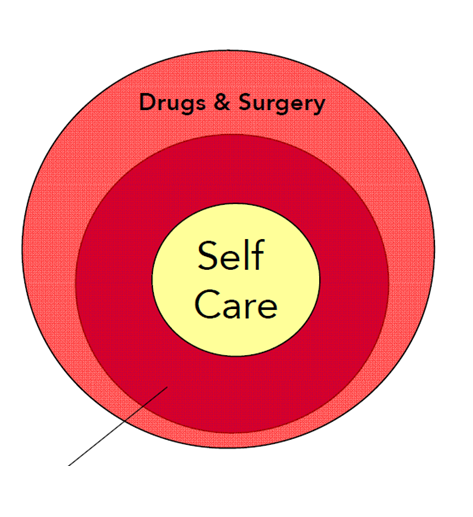A Clear Explanation.
People ask me this a lot so I decided to explain it as best I could. I always tell my clients to really flourish in life you need self-care, self-improvement, self-compassion and self-awareness. Today though I am just going to write about the difference between self-care and self-improvement. Self-care and self-improvement are two concepts that are often used interchangeably, but they are not the same thing. While both are important for personal growth and well-being, they have different focuses and goals. Self-care is about taking care of oneself, while self-improvement is about improving oneself.
Self-care is all about taking care of one’s physical, emotional, and mental health. It involves activities that promote relaxation, stress relief, and overall well-being. This can include things like getting enough sleep, eating a healthy diet, exercising regularly, spending time with loved ones, and engaging in hobbies and activities that bring joy and fulfilment.
On the other hand, self-improvement is about making intentional changes to oneself in order to become a better person. This can involve learning new skills, developing new habits, and working on personal growth and development. Self-improvement can be focused on a specific area of life, such as career or relationships, or it can be more general in nature.
The Concept of Self-Care

Self-care is the practice of taking care of one’s own physical, mental, and emotional well-being. It is a foundation for overall health and well-being. Individuals who practice self-care prioritize their needs, set boundaries, and develop healthy habits that support their well-being.
Self-care is not about self-indulgence or instant gratification. It is about making choices that are valuable and worthy of one’s time and energy. Self-care can involve a range of activities, including exercise, healthy nutrition, getting enough sleep, reading, spending time in nature, and spending time with friends.
Self-care also involves taking care of one’s mental health. This can include developing resilience, managing stress and anxiety, and seeking help when needed. Self-care can also involve setting boundaries and saying no when necessary to protect one’s well-being.
Self-care is not a one-time event, but rather an ongoing journey. It requires self-awareness, self-compassion, and self-confidence. It is not about achieving perfection or comparing oneself to others. Instead, it is about making progress and finding life satisfaction.
In summary, self-care is a foundational concept in personal health and well-being. It involves prioritizing one’s needs, setting boundaries, and developing healthy habits that support physical, mental, and emotional well-being. It is an ongoing journey that requires self-awareness, self-compassion, and self-confidence.
The Concept of Self-Improvement
Self-improvement is the process of enhancing oneself through intentional actions aimed at achieving personal growth and development. It involves setting goals, developing new skills, and adopting healthy habits that lead to a better version of oneself.
Self-improvement is often associated with success and achievement, but it goes beyond that. It is about becoming the best version of oneself, which includes improving one’s mental, physical, and emotional well-being. It is about developing resilience, self-esteem, and confidence, which are essential for a fulfilling life.
Self-improvement can take many forms, including exercise, reading, socializing with friends, and engaging in activities that bring joy and reduce stress. It can also involve seeking advice from experts, learning new skills, and adopting healthy habits such as good nutrition, quality sleep, and regular exercise.
While self-improvement is a valuable and worthy pursuit, it is important to distinguish it from self-care. Self-care is about taking care of oneself in the present moment, while self-improvement is about investing in oneself for the future. Both are essential for overall health and well-being, but they serve different purposes.
In the pursuit of self-improvement, individuals may face challenges such as uncertainty, comparison, and obsession with progress. It is important to develop self-awareness and self-compassion, to avoid shame and guilt, and celebrate small successes along the journey.
Overall, self-improvement is a valuable and worthwhile process that can lead to increased life satisfaction and happiness. It is a journey that requires patience, resilience, and motivation, but the foundation it builds is invaluable for personal growth and development.
Differences Between Self-Care and Self-Improvement
Self-care and self-improvement are two concepts that are often used interchangeably, but they are not the same thing. While both are important for an individual’s well-being, they have different goals and approaches.
Self-Care
Self-care refers to any activity that an individual engages in to take care of their physical, emotional, and mental health. It involves taking time to rest, relax, and recharge. Self-care activities can be as simple as taking a bubble bath, going for a walk in nature, or reading a book. It can also involve more intentional practices like mindfulness, breathwork, or meditation.
Self-care is a foundation for overall health and well-being. It helps individuals to manage stress, reduce anxiety, and improve sleep. It also promotes joy and happiness in everyday life. Self-care is a valuable and worthy practice that helps to build self-esteem and resilience.
Self-Improvement
Self-improvement, on the other hand, is focused on personal growth and development. It involves setting goals and working towards them. Self-improvement can include developing new habits, learning new skills, or taking on new challenges.
Self-improvement is a process that requires motivation and dedication. It can be a valuable tool for success and confidence. However, it can also be a source of stress and anxiety if taken to an extreme. It is important to set realistic goals and boundaries when pursuing self-improvement.
Differences
The table below summarizes the key differences between self-care and self-improvement:
Self-Care
- Focuses on physical, emotional, and mental health
- Involves rest, relaxation, and recharging
- Promotes joy and happiness in everyday life
- Builds self-esteem and resilience
Self-Improvement
- Focuses on personal growth and development
- Involves setting goals and working towards them
- Can be a source of stress and anxiety
- Can lead to comparison and low self-esteem
In conclusion, self-care and self-improvement are both important for an individual’s well-being, but they have different goals and approaches. It is important to find a balance between the two and to set realistic goals and boundaries. By prioritizing both self-care and self-improvement, individuals can achieve overall health and life satisfaction.
The Role of Self-Care and Self-Improvement in Mental Health
Self-care and self-improvement are two important practices that can positively impact mental health. While they may seem similar, they are actually quite different.
Self-care involves taking care of oneself holistically, including physical, emotional, and mental well-being. This can include activities such as exercise, healthy eating, relaxation techniques, and spending time with loved ones. Self-care is essential for maintaining good mental health and preventing stress, anxiety, and depression.
Self-improvement, on the other hand, involves actively working on improving oneself in specific areas, such as skills, knowledge, and personal growth. This can include taking courses, learning new skills, and setting goals. Self-improvement can lead to increased self-esteem, resilience, and self-awareness.
Both self-care and self-improvement play important roles in mental health. Self-care helps individuals manage stress, anxiety, and depression by promoting relaxation and overall well-being. Self-improvement can help individuals build resilience and self-esteem, which can also have a positive impact on mental health.
It is important to note that self-care and self-improvement should not be used as a substitute for professional mental health treatment. If an individual is struggling with mental health issues, it is vital to seek help from a mental health professional.
In summary, self-care and self-improvement are two different practices that can have a positive impact on mental health. Self-care focuses on holistic well-being, while self-improvement focuses on personal growth and development. Both practices can help individuals manage stress, anxiety, and depression, and promote resilience and self-esteem.
The Role of Self-Care and Self-Improvement in Physical Health
Self-care and self-improvement are two concepts that are often used interchangeably, but they have different meanings. Self-care refers to the actions that individuals take to maintain and improve their physical, mental, and emotional health. Self-improvement, on the other hand, is focused on developing skills, knowledge, and abilities to achieve personal goals and aspirations.
When it comes to physical health, both self-care and self-improvement play important roles. Exercise, nutrition, and sleep are all essential components of self-care that can help individuals maintain healthy body weight, reduce the risk of chronic diseases, and improve overall health. Running, in particular, is a popular form of exercise that can help individuals improve cardiovascular health, increase endurance, and reduce stress.
Self-improvement can also contribute to physical health by helping individuals develop healthy habits and behaviours. For example, learning about nutrition and healthy food choices can help individuals make better food choices and improve their overall diet. Similarly, developing time management skills can help individuals prioritize exercise and sleep, which are important components of self-care.
It is important to note that self-care and self-improvement should be approached in a balanced and sustainable way. Over-exercising, restrictive diets and lack of sleep can all have negative effects on physical health. Therefore, it is important for individuals to listen to their bodies and prioritize self-care practices that work for them.
In summary, self-care and self-improvement both play important roles in physical health. Exercise, nutrition, and sleep are essential components of self-care, while self-improvement can help individuals develop healthy habits and behaviours. It is important to approach both concepts in a balanced and sustainable way to achieve optimal physical health.
Conclusion
In conclusion, self-care and self-improvement are both important aspects of an individual’s overall health and well-being. While self-care focuses on maintaining and improving one’s physical and mental health through daily habits and practices, self-improvement is a process of personal growth and development.
Self-care is about taking care of oneself in everyday life. It involves creating healthy habits such as getting enough sleep, eating healthy food, and exercising regularly. It also includes activities that bring joy and reduce stress, like reading, spending time with friends, and taking a walk in nature. Self-care is a foundation for overall health and well-being, and it is important to prioritize it in everyday life.
On the other hand, self-improvement is a journey of personal growth and development. It involves setting goals, learning new skills, and making progress towards becoming the best version of oneself. Self-improvement can be motivated by a desire for success, confidence, or self-love. It is a process that requires self-awareness, self-compassion, and resilience.
It is important to note that self-care and self-improvement are not mutually exclusive. In fact, they can complement each other. For instance, taking care of one’s physical health through exercise can also contribute to personal growth and development. Similarly, setting goals and making progress towards self-improvement can increase one’s self-esteem and overall well-being.
In today’s fast-paced world, it is easy to get caught up in instant gratification and the pressure to improve oneself constantly. However, it is important to remember that self-care and self-improvement are ongoing processes that require patience, dedication, and self-compassion. By prioritizing both self-care and self-improvement, individuals can create a foundation for a healthy and fulfilling life.



